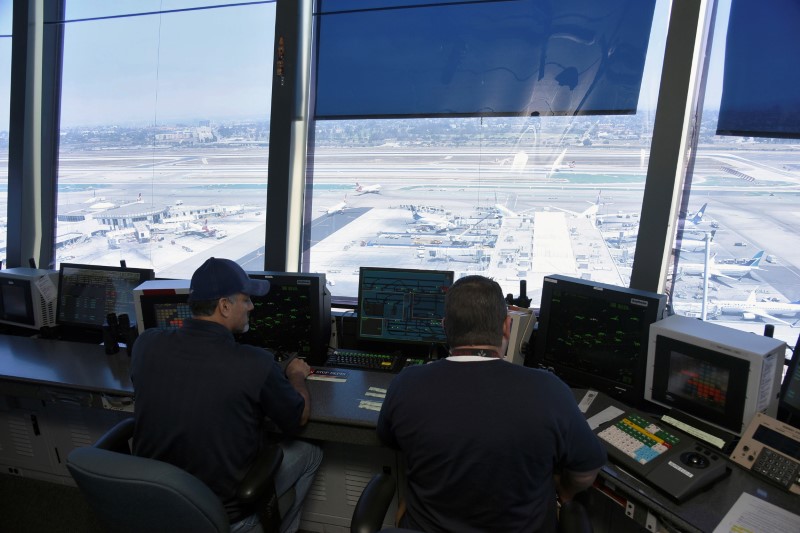By David Shepardson
WASHINGTON (Reuters) - President Donald Trump is proposing to shift oversight of the U.S. air traffic control from the federal government to an independent group, according to budget documents released on Thursday.
Trump, who called the U.S. air traffic control system "obsolete" in a meeting with airline executives last month, is proposing $16.2 billion for the Department of Transportation's discretionary budget for fiscal year 2018, a reduction of 13 percent.
Some Transportation Department budget items are paid through the highway gas tax fund.
The document says Trump's plan "initiates a multi-year reauthorization proposal to shift the air traffic control function of the Federal Aviation Administration to an independent, non-governmental organization."
Privatization advocates argue that spinning off air traffic control into a non-government entity would allow for a more efficient system and rapid, cost-effective improvements of technology, in part by avoiding the government procurement process.
Opponents, including some airlines, say the U.S. system is so large that privatization would not save money, and would drive up ticket costs and could create a national security risk. There also are concerns that airlines would dominate the private-company board and limit access to airports by business jets.
The budget would eliminate $175 million in annual funding for the Essential Air Service, a program to support commercial air service to rural airports and end subsidies for Amtrak to operate long-distance train service.
Amtrak would then "focus on better managing" state-supported lines and service in the busy Northeast corridor, the budget document said.
The Trump budget would also eliminate the Obama administration's "TIGER" grant program, saving $499 million. That program has been used to fund a variety of transportation projects, including high-speed and intracity rail, highway construction and transit bus systems.
The budget calls for cutting the budget of U.S. space agency NASA by 0.8 percent to $19.1 billion. The budget proposes cancelling the multi-billion-dollar Asteroid Redirect Mission, but funds development of the Orion crew vehicle and Space Launch System.
The budget calls for expanding public private partnerships. NASA has partnerships with Space Exploration Technologies and other companies.
The budget funds a mission to fly by Jupiter moon Europa, but cancels a multi-billion mission to land on the moon. It would also fund a Mars rover mission in 2020.
The FAA is spending billions to implement "NextGen," a system that would utilize satellites to monitor aircraft instead of radar and make other changes and has faced implementation challenges.
The FAA said it has spent $7.5 billion on NextGen over the past seven years, which "has resulted in $2.7 billion in benefits to passengers and the airlines to date, and is expected to yield more than $160 billion in benefits through 2030."
Last month, Trump criticized spending on NextGen, saying the system was "totally out of whack," over budget and behind schedule.
The FAA handles more than 50,000 flights a day and more than 700 million passengers each year. It spends nearly $10 billion a year on air traffic control funded largely through passenger user fees, and has about 28,000 air traffic control personnel.
Since 1987, several countries have moved responsibility for air traffic control from national civil aviation authorities to independent self-financed providers.

The Government Accountability Office said in a 2016 report that the United States "is generally considered to have the busiest, most complex and safest ATC system in the world."